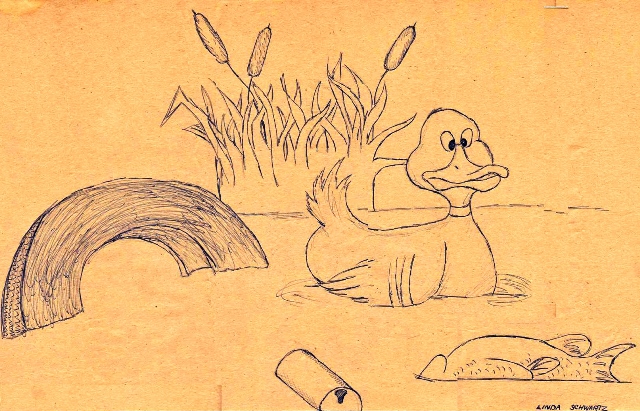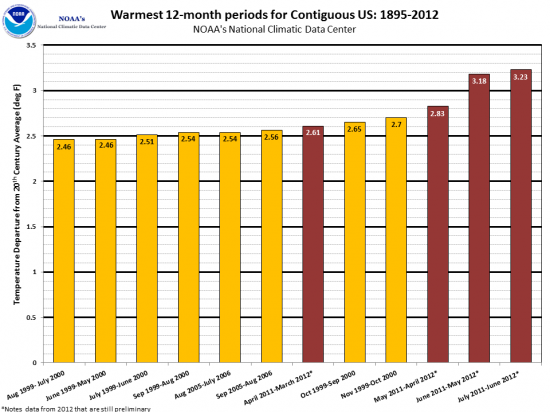When new preppers wonder what it is they should prepare for, the answer these days is “Pick a calamity.”
Darren and I noticed many of our customers and fellow preppers are age 40 and older. We think it’s because we are all old enough to recall what life was like when the world’s population was half of what it is today. We grew up without worries of nuclear waste leaking into the environment, extreme storms or economic collapse. A lot has changed since our youth.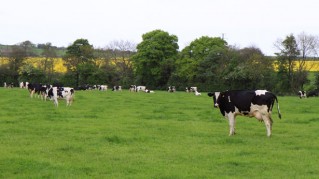
We didn’t watch much TV in our house when I was young, partly because my mother freaked out about the electricity bill and worried we’d ruin our eyes. So, for me to remember one particular program is not a big deal – except that the CBS Special Report I remember aired 43 years ago.
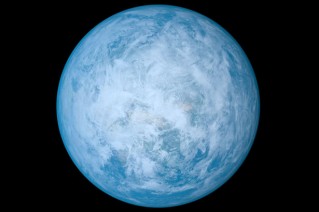 In April 1970, I was in grade school when newscaster Walter Cronkite presented “Earth Day – A Question of Survival” the night of the first-ever national Earth Day. We likely learned quite a bit about the upcoming event in advance as the founder, young Senator Gaylord Nelson, hailed from my home state of Wisconsin.
In April 1970, I was in grade school when newscaster Walter Cronkite presented “Earth Day – A Question of Survival” the night of the first-ever national Earth Day. We likely learned quite a bit about the upcoming event in advance as the founder, young Senator Gaylord Nelson, hailed from my home state of Wisconsin.
Although I didn’t understand every Earth Day objective, and my dad called all activists “hippies,” the movement meant much to me because I spent so much time outdoors as a youngster. In all seasons in any weather, I was building forts, sledding, fishing, hunting or just plain exploring the wilderness. I didn’t want my world to change.
Reviewing an original program video this week, I was reminded of Cronkite’s words about our fouled skies, filthy water and littered earth. He called the first national Earth Day a “day dedicated to enlisting all the citizens of a bountiful country in a common cause of saving life from the deadly byproducts of that bounty.”
I scored an A+ on my poster project that first Earth Day. I drew a crying rabbit sitting on a stump surrounded by acres of sawn trees. Maybe I added a few empty cans and old tires (I liked drawing those) in the clear-cut forest.
My cartoonish rabbit held a sign spelling P-O-L-L-U-T-I-O-N vertically, with each letter starting another word that my young mind perceived as being really bad. As I recall, the words (gleaned from the dictionary) were Putrid, Obscene, Loud, Lousy, Ugly, Toxic, Icky, Oily and Nasty.
I drew this picture of the duck in a trash-filled pond when I was about 13. In the 1970s, I thought our ecological problems were roadside litter and air pollution in some far-off cities. I knew nothing of nuclear waste, ozone depletion, global warming, icecaps melting, peak oil, genetically modified organisms at loose in agriculture, poisons in drinking water, rainforest depletion, overpopulation or mass extinction of species.
Then it occurred to me as I read environmental news of that era and watched a few more Earth Day 1970 videos that no one else was talking about those issues either. Our concerns were easier to grasp because we could see them – industrial waste in our air, water and soil, and just a general untidiness.
Only once did I come across more complex issues in my research. “This planet is threatened with destruction and we who live in it with death,” Prof. Barry Commoner, a biologist, said at an Earth Day Teach-In. “The heavens reek, the waters below us are foul, children die in infancy, and we and the world, which is our home, live on the brink of nuclear annihilation.”
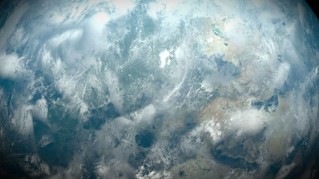 Cronkite said the first Earth Day event attracted people in 2,000 communities across the United States. They were predominantly young, white and anti-Nixon. “The protests appeared frivolous and the protestors curiously carefree,” he said, “although their message was clear – act or die.” Perhaps the extreme, immediate-call-to-action language caused many then to ignore the grassroots mission as exaggeration.
Cronkite said the first Earth Day event attracted people in 2,000 communities across the United States. They were predominantly young, white and anti-Nixon. “The protests appeared frivolous and the protestors curiously carefree,” he said, “although their message was clear – act or die.” Perhaps the extreme, immediate-call-to-action language caused many then to ignore the grassroots mission as exaggeration.
President Richard Nixon’s advisors advised him against attending any Earth Day events and said there was no money in the federal budget for “any action on environmental problems.”
It was 20 years before Earth Day became a world event. When a United Nations committee in 1987 called for banning manmade chlorofluorocarbons by 2000 after evidence the chemicals destroy Earth’s ozone layer, developing nations such as China balked at a total phaseout of CFCs, saying they “did not want to sacrifice economic progress,” according to the 1989 “Young Students Learning Library.”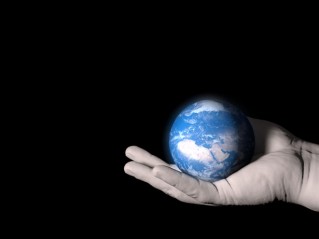
In developing countries’ view, the United States and other industrialized nations had been recklessly polluting the world for nearly 100 years by that time. We should be the ones to penalize our economy and clean up the mess.
Just last month, the United Nations Intergovernmental Panel on Climate Change finally said with confidence that it is “extremely likely” global warming experienced since the 1950s is manmade. In 2007 the panel said it was “very likely” to be man’s fault. It had taken many years to reach that point.
Qin Dahe, who co-chaired the panel’s report, said, “Our assessment of the science finds that the atmosphere and oceans have warmed, the amount of snow and ice has diminished, the global mean sea level has risen and the concentrations of greenhouse gases have increased.”
Still, just like in 1970, there are many who disagree with the panel’s findings, citing a purported slowdown in warming in the last 15 years. While the air temperature may not be warmer, according to some experts, the ocean temperature is, possibly because the oceans are absorbing the extra heat. Still, according to former Vice President Al Gore, 12 of the hottest world temperatures have been recorded in the last 15 years. That has certainly been true here in the Ozarks.
“We’re seeing the manifestations all over the world,” Gore said in a UN Climate Week presentation. “There has been a 100-fold increase in extremely hot days occurring around the Earth,” including extreme weather events such as Colorado’s recent flooding and West Coast fires.
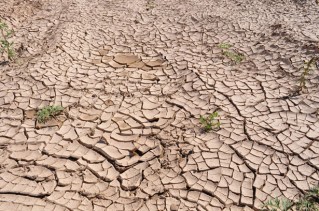 In 2007, I interviewed a global warming expert, scientists and meteorologists about Missouri’s extreme weather. Although they couldn’t agree then on the cause, their consensus was that we could expect more severe storms, insect infestations, heavier downpours, longer droughts and more “freak” unseasonal weather.
In 2007, I interviewed a global warming expert, scientists and meteorologists about Missouri’s extreme weather. Although they couldn’t agree then on the cause, their consensus was that we could expect more severe storms, insect infestations, heavier downpours, longer droughts and more “freak” unseasonal weather.
Since then, our weather has gotten even more bizarre.
Darren and I are old enough that we can look back and say, “It didn’t use to be like this.” Rain rarely falls peacefully anymore. It pounds down all at once, blows in like a hurricane or doesn’t rain for weeks on end. Instead of anticipating a welcome shower when we hear thunder in the distance, we wonder if it’s time to head to the basement or if the garden will be smashed to smithereens.
Dr. Helen Caldicott, who has been speaking against nuclear power for 40 years, said recently when I asked her why we didn’t pay attention sooner to the environmental warning signs, “Yes, indeed, why didn’t we?” Now, with more extreme weather in our future, the outlook is gloomy. The release of radioactive contamination from the earthquake-damaged Fukushima nuclear plant across the Pacific Ocean is “much, much worse” than even Caldicott predicted.
As I learned recently, some scientists discredit Caldicott for her “fear-based plea” to end nuclear power. I wonder if business interests override concerns of public safety and planet health. Meanwhile, at Hanford Nuclear Reservation in Washington, six holding tanks have been leaking the world’s most dangerous toxin into the environment for years with no plans for replacement.
Although George H.W. Bush promoted himself as the “environmental president” in 1990, a year later the Bush Administration disagreed with proposals by the European Community and Japan to deal with perils of global warming, according to “A People’s History of the United States” by Howard Zinn. The Bush Administration feared setting limits and timetables on carbon emissions would “hurt the nation’s economy” without “demonstrable long-term climatic benefit.”
I can’t even imagine what the next 40 years will bring, but how I wish our only concerns were some beer cans and old tires chucked in the woods.
To not be prepared in this era of so many potential calamites, simply does not make sense. Pick one. And as you prepare, please plan for your family’s water needs.
© 2013 Well WaterBoy Products LLC ♦ WaterBuck Pump™ ♦ Pedal Powered PTO™

